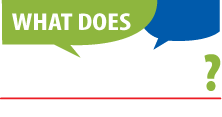Definition of: like
(līk) adjective
1. Resembling; similar in qualities, appearance, etc.
2. Bearing a close or faithful resemblance, as a portrait.
3. Math. Identical: like angles.
4. Nearly identical; equivalent: Take a like amount of plaster.
5. In golf, having played the same number of strokes: said of competing players.
6. Dial. Likely to; expected: We are like to meet no more.
7. Dial. On the point or verge of; about to: I am like to cry when I think of her.
—like…, like… As the one is, so the other will be: like father, like son.
—adverb
1. In the manner of; as if: To run like mad.
2. Colloq. Likely: Like as not we'll meet again.
—prep.
1. Similar to; resembling: You look like your father.
2. Characteristic of; expected from: That's just like your impudence!
3. In the mood or frame of mind for: to feel like sleeping.
4. So as to indicate, promise, or presage: to look like rain.
—like anything (or blazes, the devil, etc.) Colloq. With great speed, force, violence, or vehemence.
—noun That which is similar or equivalent to, or of the same nature as, something else.
—the like (or likes) of: Colloq. Any thing or person like.
—v.i. Dial. To come near or be on the point of: used in the past and past perfect tenses with the perfect infinitive: He liked (or had liked) to have died.
—conj.
1. Colloq. As; in the manner that: It all happened like you said.
2. Colloq. As if: It looks like he's going to fall. [OE gelīc]♦ like, as, as if
Like is unacceptable as a conjunction at the formal level of writing, where factual clauses of comparison are introduced by as, contrary–to–fact ones by as if with the subjunctive. At the informal level, because it signals a coming comparison much more strongly than the rather neutral as, like is in widespread use. It has good colloquial standing, except with die–hard sticklers for correctness, in idiomatic expressions where it serves both as an adverb to round out a phrasal verb, and as a conjunction governing a finite verb: It looks like we're in for trouble; It sounds like a train's coming, and I'll have to run for it. In the last, the almost imperceptible gradation from the formally correct That sounds like a train coming to the informal It sounds like a train's coming shows why any ironclad prohibition of like as a conjunction at the informal level is ill–advised. The effort to ban it has frightened the timid into substituting as for like in adjectival or prepositional uses where like is idiomatic. Nor has the attempted ban deterred novelists and playwrights, whose trade demands a good ear for the way people actually speak, from representing their literate characters as making rather free use in dialog of like as a conjunction, usually, however, with a regard for idiom.

Comment about this word, ask questions, or add new information about this topic: